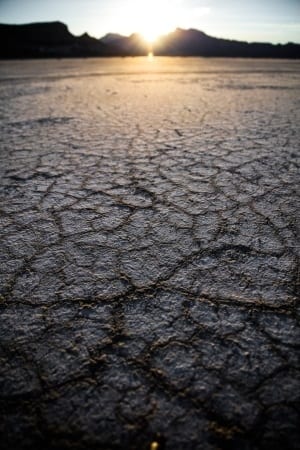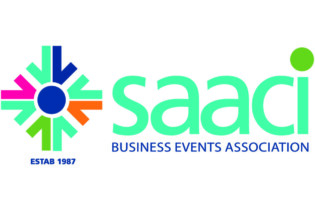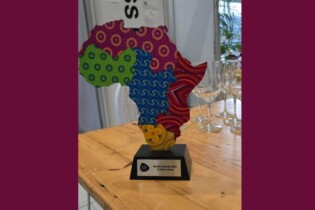Day Zero is the day that the City of Cape Town anticipates it will need to turn off the taps. It’s not an inevitable outcome – yet. Rather, it is a date that can arrive sooner or later, or as a best case outcome be avoided altogether, depending on how Capetonians manage their water usage.
According to the City of Cape Town’s water dashboard, from the week of 29 January the combined level of dams supplying the city were at 26.3% capacity and decreasing with ongoing use during the dry season. Meanwhile, the percentage of residents using 87 litres or less of water per day was at 55%. Fortunately, the trend shows that residents are becoming more conservative with their water consumption – possibly because of heightened awareness about the water crisis. Less fortunately, since 01 February the water restrictions have increased to Level 6B which requires everyone to use only 50 litres or less of water per day.
With the current usage rates, and without rainfall, Day Zero is expected to be on 11 May 2018.
However, “If all stakeholders adhere to the required water savings target, ‘Day Zero’ can be avoided,” urges a tourism partners communication sent out on the 30 January 2018 from a joint committee of the Western Cape government, The City of Cape Town, the Southern African Association for the Conference Industry (SAACI), The Federated Hospitality Association of Southern Africa (FEDHASA), the Southern Africa Tourism Services Association (SATSA), Cape Town Tourism and Cape Town & Western Cape Tourism, Trade & Investment (Wesgro).
The hospitality industry reacts
The Event Greening Forum (EGF), a non-profit organisation that promotes sustainability within the business events sector, supports the view that the hospitality and events industry must continue servicing their clients – but in a way that is responsible and does not further compound existing water problems.
Greg McManus, the Chairperson of the EGF, says, “While recognising the impacts that the hospitality and meetings sector have on water consumption, we also acknowledge the efforts that are being made to reduce consumption and we are confident that Day Zero can be avoided”.
More than 5 million tourists visited Cape Town from July 2016 to June 2017, and these numbers are expected to grow. This puts more pressure on the city’s water supply. At the same time, the tourism industry employs approximately 300 000 people and brings millions of Rand of spend into the area. This means it is vital that it continues uninterrupted so that these benefits continue.
Grace Stead is a sustainability consultant and the Director of Steadfast Greening, as well as a founder of the Event Greening Forum, who has been assisting with workshops around water usage in the city. She adds, “Unfortunately some overseas companies are deciding not to host their conferences here, because they are concerned about water shortages. The consequences of these decisions do not help our situation, but can further complicate it.”
The tourism partners’ communication points out: “During peak season (November – January) international tourists only add 1% to the population of the Western Cape. This number drops from April – September. If the tourists follow the daily usage guideline the impact would therefore be negligible.”
How can this be done?
Accommodating guests while keeping their water usage under 50 litres each a day seems like a big ask. But it is possible. Venues like Spier and The Vineyard have always integrated sustainable practices into their business model, and further improving their water usage was something they readily tackled – beyond many of the standard measures, such as removing bath plugs from rooms and installing aerators on all water outlets to reduce the flow rate.
Spier pioneered an eco-friendly wastewater treatment in 2007 that recycles 100% of the farm’s grey and black waste water. More recently, they purchased an innovative new Water From Air™ machine that draw in air to condense into water. The machine filters and purifies the water so that it is safe to drink. This one machine can generate as much as 1,500 litres of water a day, or 45,000 litres a month.
Spier Sustainability Director Heidi Newton-King adds, “With an added focus in the last six months, Municipal water consumption in the hotel has been reduced by 58% and in conferencing by 55% compared to the same period in 2015 (pre-drought).”
George Petousis, CEO of The Vineyard, says, “Based on our current calculations for The Vineyard, our water usage has been reduced in January by 42% year on year. Our new grey-water system will be fully functional by end February at both The Vineyard and Oude Werf hotels, and will provide us with a further reduction of between 5% – 8%. The hotels have a host of initiatives in place that have contributed to this reduction, and efforts to further reduce the Petousis hotels’ reliance on municipal water is ongoing.
“All of our water conservation efforts are communicated to guests through a communications campaign that kicks in the moment they book their room, to arrival and throughout their stay. It ensures guests are aware of Cape Town’s drought and what is being done about it – as well as how they can help.”
Petousis confirms, “Through the measures we have set in place, all Petousis hotels are preparing for Day Zero and will continue to operate without unnecessarily compromising our guests’ comfort.”
The Cape Town Cycle Tour sets a new standard
The events industry is also proving that “business as usual” is possible with innovative adaptions. The organisers of the Cape Town Cycle Tour decided it will continue this year, in light of the benefits it brings to Cape Town – such as a direct injection of R10 million towards charity and over R500 million flowing into the city. However they have undertaken to not use any municipal water for the event by doing the following:
- 15 000 participants are expected to travel to the city for this event. The organisers are communicating with them to ensure they are aware of the water restrictions in Cape Town. Those who drive to Cape Town for the event are encouraged to bring all of their own drinking water.
- Only 14 water points will be set up on the day (the minimum number that is considered medically safe). All water and ice used for these will be brought to the city from other water secure areas, and desalinated water will be used for cleaning. Any excess water from these stations will be captured as grey water and taken to a treatment plant after the tour.
- It is estimated the Cape Town Cycle Tour visitors to the city will use 1.5- to 1.75-million litres of water during their stay. The organisers have decided to use some of the funds they raise through the event to purchase 2 million litres of responsibly sourced spring water to put back into the local water grid to offset this use.
Click here to read more about their water crisis plan.
These steps show that large scale events can continue without compromising – and in fact benefiting – the wellbeing of local communities.
Not only Cape Town
McManus adds, “It’s important to add that this isn’t a uniquely Cape Town problem; it’s simply one that is affecting Cape Town the most severely right now.”
Umgeni Water, which is the biggest supplier of clean water for KwaZulu Natal, reports it is at worrying low levels. It has reduced its potable water production by 15%, which means the municipalities of uMgungundlovu‚ Pietermaritzburg and Durban need to similarly reduce their usage by 15% daily. Meanwhile on 22 January 2018 the City of Johannesburg reiterated that the Level 1 water restrictions that came into effect in March 2017 are still in place, while expressing concern that water usage has been on the increase.
South Africa is a water scarce country. Treating water like the precious commodity it is needs to become our new normal. Boreholes and desalination plants are not necessarily the final solution, as underground aquifers are being depleted far more quickly than they are being replenished, and desalination is an energy intense process which increases the salinity of the ocean – something which could potentially impact the marine life and make the desalination process more costly over time. Rather, says McManus, “This is about adapting your business model to ensure you use less water more responsibly, regardless of what is available right now.”
For more information
For further guidance on best practice for sustainable business events, please browse the EGF website www.eventgreening.co.za or contact us directly with your query.
Additional resources:
www.capetown.gov.za/thinkwater
www.westerncape.gov.za/110green/build-water-sector
www.greencape.co.za/content/focusarea/drought-business-support







